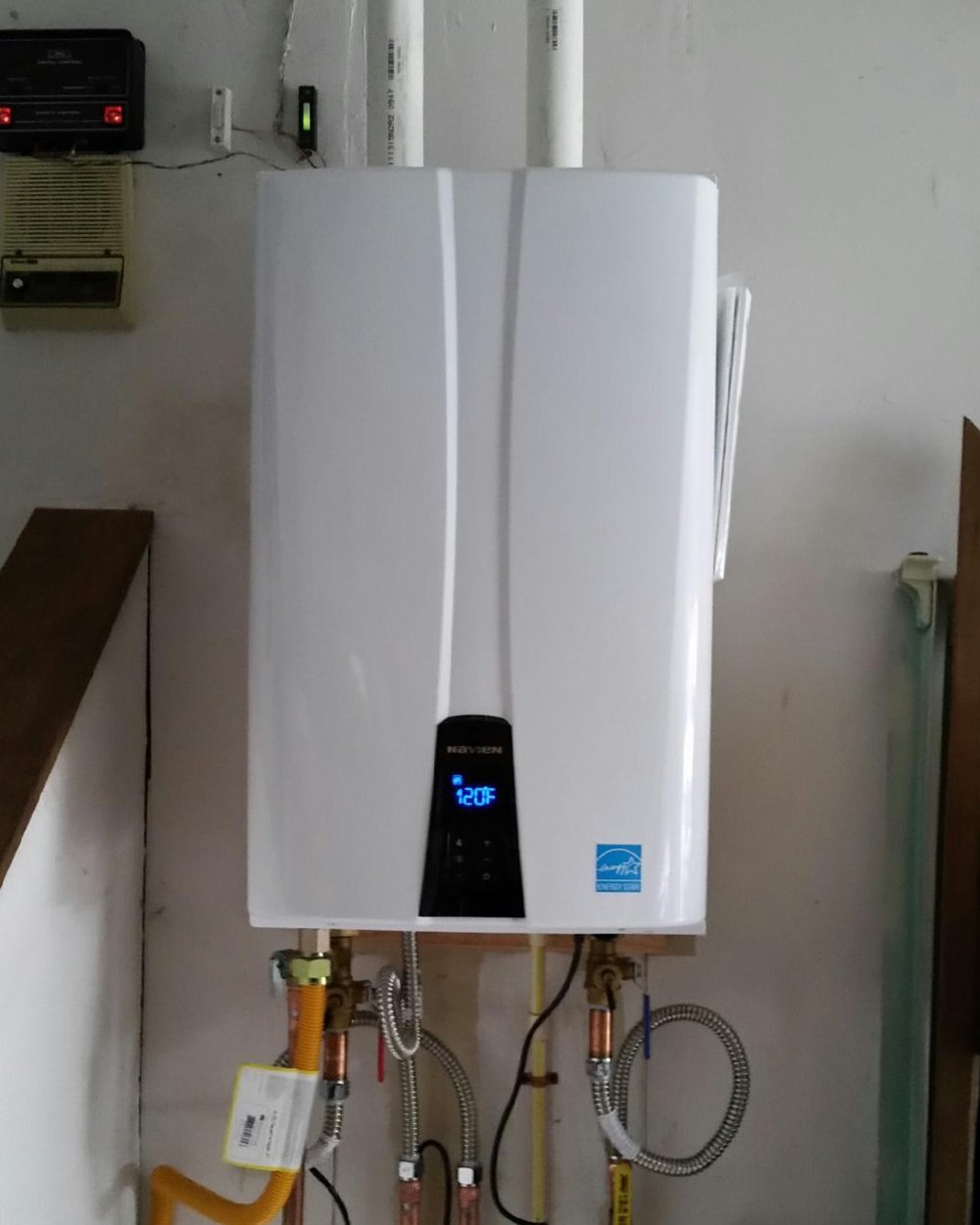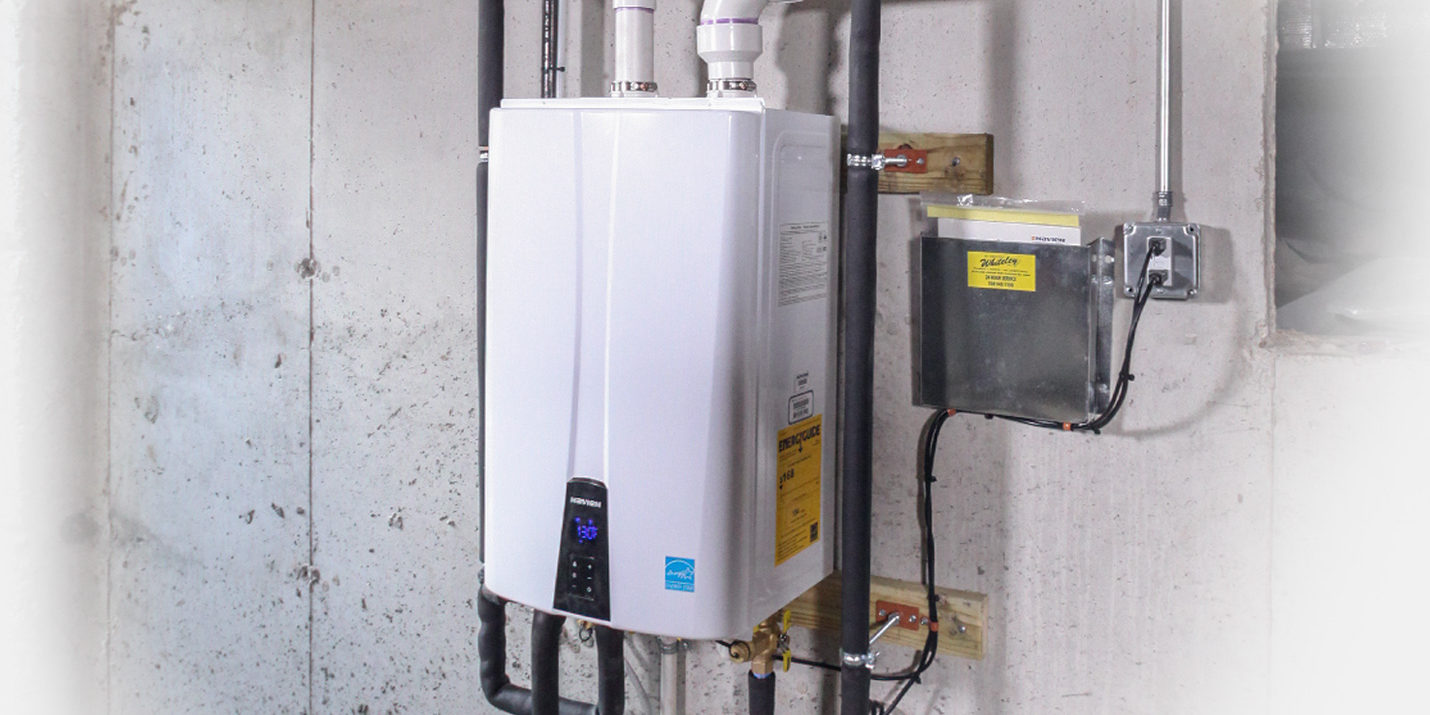Uncovering The Gains Of On-Demand Water Heaters
Uncovering The Gains Of On-Demand Water Heaters
Blog Article
Are you in search of answers about Pros and Cons of Tankless Water Heater?

In a globe where ease and performance preponderate, it's not a surprise that property owners are frequently on the lookout for smarter ways to manage their home's energy intake and comfort. One innovation that has gradually gotten popularity is the tankless water heater. But just what makes these systems stand out from the standard tank-based versions a lot of us matured with? Let's dive in and discover the benefits of tankless water heaters, helping you determine if it's time to make the button in your home.
Intro
Picture this: you enter the shower after a lengthy day, expecting a relaxing cascade of warm water, just to be welcomed by icy droplets because the last person used everything up. Sound acquainted? Standard hot water heater save a set quantity of hot water, indicating you're at the mercy of that tank's supply. Tankless systems, on the other hand, heat water as needed. Say goodbye to going out mid-shower, say goodbye to wrestling with routines simply to ensure hot water is available.
Recognizing Tankless Water Heaters
What Are Tankless Water Heaters?
Tankless water heaters, occasionally called on-demand or instantaneous hot water heater, give warm water just as it's needed. As opposed to keeping gallons of pre-heated water, these units kick right into action the moment you switch on the tap. Water travels through a heat exchanger, heating up in real-time, meaning you obtain a nonstop circulation of warm water without the demand for a huge storage tank resting idly by.
How Do They Differ from Standard Solutions?
Standard heating units hold a tank of warm water, making use of power to maintain that container at a regular temperature. Tankless systems get rid of the standing supply, cutting down on lost power and the bulky footprint of a large cyndrical tube. Basically, you're upgrading from a "accumulation" frame of mind to a "made-to-order" strategy.
Usual Kinds Of Tankless Devices
Tankless hot water heater typically come in two selections: gas and electric. Gas models have a tendency to deliver greater flow rates, perfect for larger homes, while electrical models usually serve smaller homes and are commonly simpler to mount. Additionally, some systems are developed for point-of-use (offering one component) while others can handle the whole home's hot water requirements.
Secret Advantages of Tankless Hot Water Heater
Energy Effectiveness and Cost Savings
Say goodbye to heating a titan container's well worth of water and maintaining it warm throughout the day. Tankless heating systems reduce standby energy losses, which can decrease utility expenses. While the preliminary expense might be greater, the long-term financial savings usually justify the investment.
3. Space-Saving Layout
If your home is short on storage, removing the cumbersome tank maximizes important room. Tankless devices are small and can commonly be mounted on wall surfaces, hidden in edges, or installed in tight utility storage rooms without having all to oneself the whole room.
4. Longer Life-span
A well-maintained tankless hot water heater can outlast its tank-based cousin. Conventional storage tanks may last 10-15 years, while tankless designs can keep chugging along for two decades or even more, making them a strong financial investment gradually.
1. Limitless Hot Water Supply
Ever needed to arrange showers so every person gets their fair share of warm water? With tankless, that ends up being a thing of the past. As long as the heating system's circulation capability isn't exceeded, you can take back-to-back showers without turning into a popsicle.
5. Improved Water Quality
Keeping water in a tank can occasionally cause sediment accumulation or a slightly "off" preference. With tankless systems, fresh water is heated instantly, lowering the possibilities of debris buildup and potentially supplying cleaner-tasting water.
Considerations Before Switching
Though the advantages are engaging, it's smart to think about a couple of factors prior to totally committing.
Examining Your Home's Water Usage Patterns
If your house simultaneously uses multiple fixtures with high hot water need, see to it the system's circulation rate meets your demands. Recognizing your use patterns assists you pick the appropriate size and kind of tankless heater.
Upkeep and Treatment Tips
Tankless systems are relatively reduced upkeep, but they aren't set-it-and-forget-it devices.
Regular Cleaning and Descaling
Hard water minerals can develop in the warmth exchanger, impacting efficiency. Normal descaling (typically suggested yearly) keeps the device going for peak performance.
Annual Specialist Assessments
A yearly checkup from a professional makes sure small concerns are caught early. They'll examine the device's efficiency, look for leaks, and help maintain optimal efficiency.
Preliminary Investment Costs
Tankless heating units usually include a higher upfront cost. In between the unit itself and possible installation alterations, the preliminary cost may provide you sticker label shock. But bear in mind to view it as a lasting investment.
Setup Demands
Depending on your home's infrastructure, you may need added electrical ability or gas line upgrades. Ensure you recognize the installation demands and seek advice from an expert to stay clear of surprises.
Guaranteeing Correct Air Flow
For gas models, proper ventilation is important to securely eliminate exhaust gases. Make sure airing vent systems are tidy and appropriately mounted to stop any kind of possible safety and security hazards.
Comparing Different Brands and Versions
Not all tankless hot water heater are developed equal.
Researching Dependable Suppliers
Try to find trustworthy brands with a background of generating quality systems. A reputable supplier commonly supplies much better customer assistance and longer guarantees.
Installation: DIY or Expert?
While some house owners relish tackling jobs themselves, tankless installation may not be the most effective time to break out the toolbox.
Pros and Cons of DIY Setup
A do it yourself mount can save money, yet it comes with risks. Incorrect installation can cause ineffectiveness or security concerns. If you're handy and have experience, it might be feasible-- but proceed with care.
Checking Out Testimonials and User Comments
Customer evaluations and comments from neighbors or pals that have actually gone tankless can use beneficial insights. Occasionally, real-life experiences can be more informing than advertising and marketing sales brochures.
When to Call an Expert Plumbing Technician
For most, calling a professional ensures whatever's done correctly. An expert plumbing professional understands regional codes, sizing needs, and venting parameters, minimizing the threat of mishaps.
Maximizing Efficiency
You've purchased a tankless unit-- now maximize its efficiency.
Optimal Temperature Setups
Many people set their units in between 120-140 F. Readjusting the temperature level can enhance convenience and financial savings. Experiment to discover a sweet spot that doesn't lose power.
Pairing with Low-Flow Fixtures
Wish to extend your device's capacities? Think about mounting low-flow showerheads and taps. They decrease water usage, permitting your tankless system to provide a steady stream of hot water without straining.
Environmental Influence
Tankless hot water heater straighten with greener living goals.
Lowered Carbon Impact
By using much less power and only heating water as required, tankless systems can reduce your home's carbon footprint, lowering your ecological effect.
Conserving Natural Resources
Much less power consumption and less thrown away hot water convert right into fewer natural deposits being utilized, an environmental win-win.
Who Profits A Lot Of from Tankless Heating systems?
The beauty of tankless heating units is that they can suit a range of families.
Huge Households vs. Single Passengers
Huge family members could love the endless warm water supply, while single passengers appreciate the power cost savings from not heating up an entire storage tank for just someone's early morning shower.
Home Owners with Restricted Room
If your home is short on square footage, losing the large tank maximizes room for various other fundamentals-- or possibly simply a lot more breathing space.
Eco-Conscious Consumers
Going tankless aligns with environmentally friendly worths, guaranteeing you're not throwing away energy or sources.
Future Patterns in Tankless Water Heaters
The globe of home devices is ever-evolving, and tankless water heaters are no exception.
Advancements in Innovation
R&D is continuously enhancing warmth exchangers, making systems more effective and durable. Future models may be also quieter, more compact, and better suited for varying climates.
Smart Home Combination
Visualize adjusting your water heater's temperature level via an application or receiving upkeep signals on your phone. As wise home tech advancements, we'll see more connectivity and convenience.
Verdict
Selecting a tankless hot water heater is more than simply upgrading your home's hot water system; it's buying long-term convenience, power effectiveness, and a greener lifestyle. By considering your house's water use, being mindful of setup requirements, and dedicating to routine upkeep, you can appreciate a constant stream of hot water without the luggage of a bulky storage tank. As technology advances, you can eagerly anticipate even smarter, extra reliable tankless services that not just make your life simpler however additionally profit the planet.
Why You Should Consider a Tankless Water Heater for Your Home
Energy Efficiency and Cost Savings
Tankless water heaters, also known as on-demand water heaters, heat water only when needed. This means they don't waste energy keeping a tank of water hot constantly. This efficiency translates into substantial cost savings on your monthly energy bills.
Endless Hot Water Supply
One of the significant advantages of tankless water heaters is their ability to provide a continuous supply of hot water. Traditional tank water heaters have a limited capacity and can run out of hot water, especially during peak usage times. In contrast, tankless water heaters can provide an endless stream of hot water, making them ideal for larger families or homes with high water usage.
Space-Saving Design
Tankless water heaters are compact and take up significantly less space compared to traditional tank heaters. They can be installed on walls, under cabinets, or even outside, freeing up valuable space in your home. This makes tankless water heaters a great option for smaller homes or properties with limited space for a traditional water heater.
Longer Lifespan and Lower Maintenance
Tankless water heaters typically have a longer lifespan compared to traditional tank heaters. They can last up to 20 years or more with proper maintenance. Additionally, tankless systems are designed with replaceable parts, which can extend their lifespan further and reduce long-term maintenance costs.
Environmentally Friendly
Reducing energy consumption not only saves you money but also benefits the environment. Tankless water heaters contribute to a smaller carbon footprint by using less energy to heat water. Their energy efficiency and ability to minimize standby heat loss make them an eco-friendly choice for environmentally conscious homeowners.
Customized Temperature Control
Tankless water heaters offer precise temperature control, allowing you to set the desired temperature to meet your specific needs. This level of customization ensures you always have water at the perfect temperature for your comfort and usage requirements.
https://beantownservices.com/blog/consider-tankless-water-heater-for-your-home

I am very focused on 5 Benefits of Tankless Water Heaters and I'm hoping you appreciated the blog post. I beg you pause to share this write-up if you enjoyed it. Many thanks for taking the time to read it.
Call Report this page